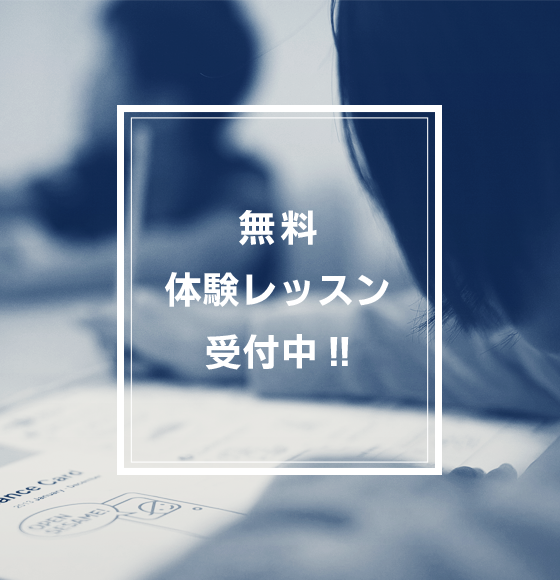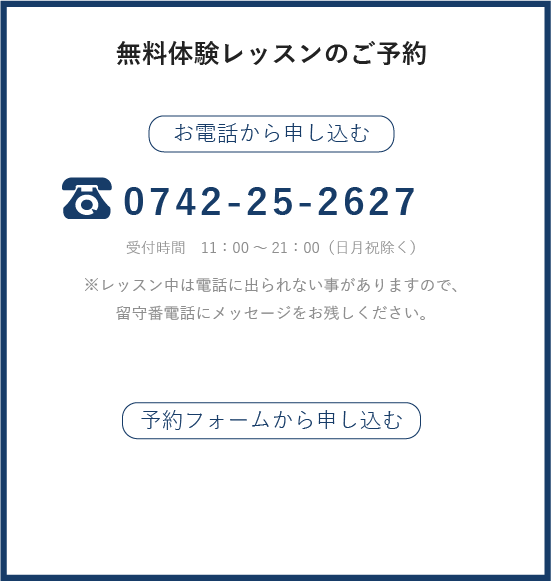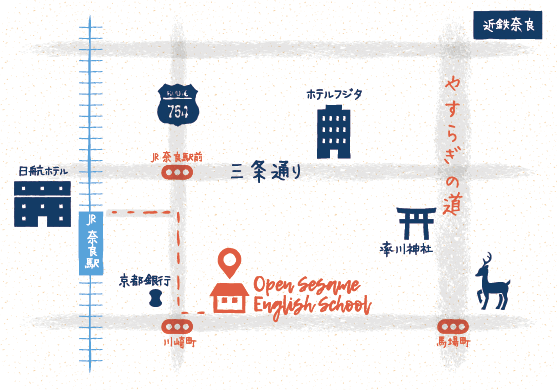Trial and error
※英語の後に日本語が続きます。/Japanese follows after English.
Hi, everyone! How was your Valentine’s Day?
As we already mentioned, we had a great week doing Valentine’s day lessons!
Here is a photo of the best message written by a junior high school student on her Valentine’s Day card.

One of the purposes for our event lessons is to experience the language in a real context. Unlike textbook learning, making cards for someone you like is a real experience and it’s a great opportunity for learners to say something meaningful in another language. It is very challenging and most of our students only used the expressions we introduced. But if you stop worrying about making mistakes and take a step forward, you get to know how to say what you really want to say in English. This process is very important in language learning. Who cares if you make one or two (or even 10!) mistakes? We are all here to learn a new language and without trying to speak, it will be harder to speak English. So please try to express yourself in English and make mistakes. It makes you realize what you can/can’t say in English. You might be able to understand what’s written/said quite well, but that doesn’t mean you can speak like that.
Here’s an example. You watched Kei Nishikori play tennis at the Australian Open and got inspired. You read many books about tennis and became very knowledgeable, but can you play like Kei on the court only by book-learning? Absolutely not! Speaking English is like playing sports. You need to actually get your words out of your mouth and physically practice using them.
Going back to my lesson with the junior high student, I asked her if there is anything she wanted to say other than “Happy Valentine’s Day” and “Thank you, always”. She said, “OK, I’ll try,” and she tried her best to put the words together with as few mistakes as she could. I could totally understand what she wanted to say and helped her a little bit so it sounded natural in English. She said, “Oh, that’s how you say it!” If she had decided not to try, she wouldn’t have learned it. Plus, she will probably remember these sentences more than any sentences on the textbooks because they are meaningful to her and they came out of her thoughts.
We are here to help you, so please try out your English and most importantly: make some mistakes!
皆さん、こんにちは。皆さんはどんなバレンタインデーを過ごされたでしょうか?
前にもお話した様に、私達はバレンタインレッスンでとても楽しい1週間でした。
これは、中学生の生徒さんがバレンタインカードに書いた今年のベスト・メッセージです。
私たちがイベントレッスンをする目的の一つに、実際の状況の中で言葉を体感してもらうという目的があります。テキストブックで学ぶのとは違って、大切な人にカードを作る事は、実際の体験で、自分にとって意味のあることを外国語で話すとても良い機会です。これはとても難しいことで、レッスンでも生徒さんのほとんどが講師が紹介した表現を使ってカードを作りました。でも、もしそこで間違えることを恐れずに一歩前に進めば、自分が本当に言いたかったことをどう英語で言うのかを知ることができます。これは言語学習においてとても重要なプロセスです。1つや2つ(10個でも!)間違いをしたからって、何も気にすることはないんです。皆んな、新しい言葉を学ぶために教室に来ているのですから。でも話すことにチャレンジしなければ、英語で話ができるようになるのは難しいでしょう。だから、英語で自分の考えを表現することにチャレンジして、どんどん間違えて下さい。実際に話してみることで、自分が何を英語で言えて何が言えないか知ることができます。書いてあること、話されていることがある程度理解できても、それと同じように話すことができるとは限りません。
例えば、あなたが全豪オープンで錦織圭選手の活躍を見て、自分もテニスをしてみたいと思ったとします。あなたはテニスに関する本をたくさん読み、たくさんの知識を身につけました。でも、本から得た知識だけで実際にコートに立った時、錦織選手のようにプレーすることができるでしょうか?絶対に無理ですよね!英語のスピーキング力というのは、スポーツによく似ています。実際に言葉を口にし、体を使って言葉を使う練習をしなければ上達しません。
中学生とのレッスンに話を戻しましょう。彼女に”Happy Valentine’s Day”や”Thank you, always”の他に言いたいことがあるか聞くと、「トライしてみます」と言って、できるだけ間違いをしないように頑張って文を作ってくれました。彼女が何を言いたいかは完全に伝わったので、自然な英語になるように少しだけ直しました。すると、「ああ、そうやって言えばいいんですね!」と彼女は言いました。もし彼女がチャレンジしないことを選んでいたら、この言い方を知ることはできなかったと思います。そして、この自分で作った文章は彼女にとって意味のあることで、彼女自身の考えが言葉になったものなので、きっと教科書に載っているどんな英文よりも心に残ると思います。
私達講師は、生徒さんのお手伝いをするのが仕事ですので、是非英語で色んなことを話してみて下さい。そして一番大切なことは、間違えることを恐れないで下さい!




